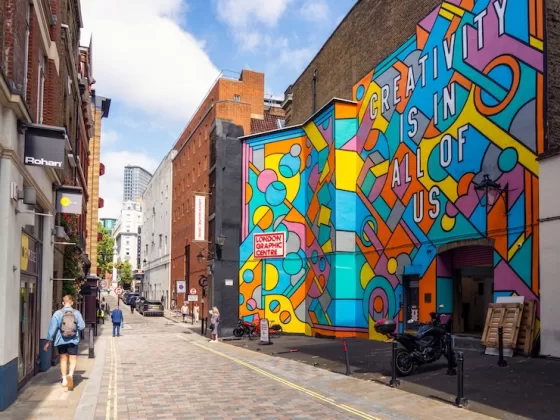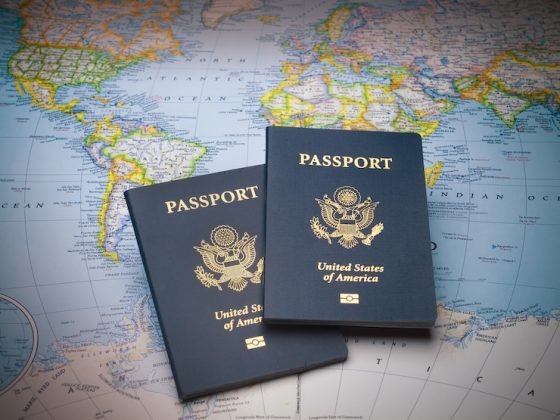Moving abroad offers more than change—it offers reinvention. For many, it’s a financial strategy. For others, it’s an emotional reset. But for most, it’s a rare opportunity to become someone more aligned with their values by living in a place that supports them. Reinvention is possible, but it doesn’t unfold passively. It takes structure: legal, financial, emotional, and logistical systems designed to support a deliberate new life.
Success abroad starts with clarity—about residency, taxation, real estate, and asset protection. It’s not about abandoning who you were, but enhancing who you are, with the power to shape your environment on your terms. Moving abroad can be the clean slate you’ve been looking for—if you plan for it with intention.
Choosing a Country That Matches the Life You Want
The first step in any serious plan to reinvent yourself is choosing a country that reflects who you want to become. That might mean moving somewhere that aligns with your values—lower taxes, better climate, more personal freedom—or simply a place that gives you the space to reset.
Residency options vary dramatically. Some countries offer digital nomad visas that make it easy to spend a year or two working abroad, while others provide permanent residency or citizenship routes through investment or real estate. Places like Portugal, Panama, Uruguay, and Georgia are not just expat-friendly—they’re transformation-friendly, with legal systems and cultural environments that make it easier to evolve into a new version of yourself.
Read more like this Top 5 Places to live in Portugal
Choosing the right country is about leverage as much as lifestyle. The right residency can offer access to international banking, new investment opportunities, and a dramatically different tax burden. Reinvention doesn’t mean you stop being strategic. It means you start building a life that actually fits your goals.

Rebuilding Your Financial Life from the Ground Up
If you’re moving abroad to start fresh, your financial life needs to move with you. That means shifting your banking, restructuring your assets, and possibly starting over with a new budget, business plan, or investment portfolio.
Offshore banking offers accessible, powerful tools for global living. Foreign bank accounts in stable jurisdictions can unlock multi-currency flexibility, protect assets, and enhance financial privacy. For location-independent earners, residency status often comes with the opportunity to legally optimize or reduce taxes.
True reinvention includes financial rethinking. It’s about clarity: What do you want your money to enable? What kind of life are you really building? Many global citizens aren’t chasing more income—they’re pursuing a lifestyle where less money goes further, and quality of life is dramatically higher.
Read more like this A Practical Guide on Offshore Banking
Property as a Launchpad for Change
Real estate is often the physical anchor of your new life. Whether it’s a small apartment in Lisbon or a fixer-upper farmhouse in the Italian countryside, owning property abroad is both an emotional milestone and a strategic asset.
Some countries require property investment for residency or citizenship. Others simply make it easy to own, rent, or develop real estate as a foreigner. Understanding the legal structure—how title works, whether foreigners can own land, what tax liabilities exist—is crucial.
For those reinventing themselves abroad, property often becomes more than an investment. It’s a commitment. It’s a signal to yourself that this is real. But it can also be a cash-flowing asset—rented seasonally, held in a foreign LLC, passed down to heirs, or used as part of a broader portfolio. And in many cases, the cost of ownership abroad is dramatically lower than it would be back home. That opens the door to a new life, not someday—but now.
“Buying property overseas is a strategic and emotional move,” says Laura Mensah, a property investment manager who helps high-net-worth clients diversify across Europe and Latin America. “A well-placed second home can be both a financial vehicle and a personal milestone—it’s about starting a new chapter with intention.”
Read more like this: How to Secure a Second Home Overseas

The Power of Second Citizenship
Second citizenship is one of the most powerful tools for personal reinvention. It’s not just about having another passport—it’s about building legal flexibility into your life. With the right second citizenship, you can hedge against instability, diversify your tax exposure, and unlock new property markets, banking options, and global mobility.
There are many ways to acquire a second citizenship—by descent, by naturalization, by investment—but all of them are long-term strategies. For someone looking to reinvent themselves, citizenship is the endgame. It’s the legal expression of a new identity.
Countries like Malta, Antigua & Barbuda, St. Lucia, and Vanuatu offer investment-based programs that fast-track this process, while others like Ireland or Italy provide ancestry-based routes that are more affordable and emotionally resonant.
Second citizenship expands your future. It multiplies your choices, strengthens your legal footing, and opens the door to new markets, jurisdictions, and mobility. When your former life no longer fits, having legal flexibility becomes one of the most valuable tools you can possess.
Read more like this: Best Countries to Gain Citizenship by Descent
Building a New Tax Reality When Moving Abroad
No reinvention is complete without restructuring how you relate to taxes. One of the most compelling reasons people leave their home countries is to escape punitive tax systems. Moving abroad, when done strategically, can significantly reduce your tax burden—and in some cases, eliminate it altogether.
But that depends on where you go, how long you stay, and how your income is structured. Some countries tax residents on worldwide income. Others, like the UAE or territorial tax jurisdictions such as Panama, only tax income earned locally. There are also countries like Portugal that offer generous non-habitual resident (NHR) regimes, where certain types of income can remain untaxed for years.
Understanding these systems is key. So is knowing how your home country treats you once you leave. For Americans, citizenship-based taxation means that moving abroad doesn’t automatically release you from IRS obligations. But for others, changing residency can mean a clean tax break. This isn’t about tax evasion. It’s about tax transformation. And if your reinvention includes financial independence or entrepreneurial freedom, your new tax home might be the foundation that makes it all sustainable.
Creating a Portable Business or Career
In the past, reinvention meant quitting your job and starting over. Today, it often means taking your career with you—but redesigning it for a new lifestyle. Whether you’re a consultant, content creator, investor, or business owner, the tools for operating globally have never been more accessible.
Establishing a foreign company—either to manage local business activity or as a vehicle for remote income—is a practical part of many reinvention plans. In some countries, setting up a business also grants you residency or visa benefits. In others, it can provide access to local banking, lower corporate taxes, and privacy protections.
The key is to structure your operations in a way that supports your new life, not the one you left behind. That might mean downsizing, automating, outsourcing, or shifting from a legacy career into something new. Reinvention doesn’t always mean abandoning your skills—it often means finally using them on your own terms.
“We’re seeing more clients use foreign company structures not just for tax efficiency, but to completely redesign how they work,” says Nathan Keller, an international business consultant based in Lisbon. “It’s part of a broader life reset that combines professional freedom with lifestyle transformation.”

Owning Less, Controlling More
One of the ironies of reinvention is that it often involves letting go of the things you once worked so hard to get. A big house, a fancy car, a packed schedule—these markers of success can become barriers to freedom. Moving abroad often forces a reevaluation of what matters and what doesn’t.
Asset protection is part of this. So is privacy. People reinventing themselves through offshore life often choose to simplify their structures while strengthening their security. That can mean shifting assets into trusts or offshore entities, using second passports to open new banking options, or diversifying wealth into different currencies and jurisdictions.
But the deeper shift is psychological. You stop thinking about accumulation, and start thinking about agility. The focus becomes long-term sovereignty over short-term comfort. And when you own your time, your movement, and your decisions—you start to feel like someone new.
Read more like this: Why Every Investor Needs a Plan B Abroad
Rebuilding Identity from the Inside Out
Moving abroad reshapes more than your paperwork—it reshapes you. From the moment you arrive, you’re met with new systems, new routines, new languages. Some changes happen quickly. Others take years to unfold. Either way, you’re building a version of yourself that fits the life you’ve chosen, not the one you left behind.
This is where reinvention becomes real. You learn to navigate discomfort. You build new habits. You form new relationships without old baggage. Nobody knows who you were back home, which means you can show up as who you are now. That anonymity is liberating—but it’s also a responsibility.
Some people find the emotional transition harder than the logistical one. But the ones who thrive abroad are those who treat reinvention as a process, not a performance. It’s not about pretending to be someone else. It’s about uncovering the parts of yourself that never had space to breathe. A new country won’t magically change you. But it can give you the distance and structure to do the work.
Reinvention as a Long-Term Strategy
Reinvention through relocation is a serious, sustainable strategy. It encompasses how you earn, where you bank, how your assets are structured, what legal protections you use, and the kind of daily life you want to live. It’s a complete recalibration of how your life works—designed with clarity, discipline, and freedom at its core.
It might begin with a property search or a visa application, but eventually it becomes something much bigger. It’s not just a relocation plan. It’s a new operating system for your life. And that system has to be resilient, intentional, and built around your personal definition of freedom.
The people who succeed in reinventing themselves abroad are not the ones chasing fantasy. They are the ones doing the work—researching tax laws, speaking to lawyers, hiring relocation advisors, learning new languages, and asking themselves the hard questions. When you start over abroad, what you’re really doing is architecting a life that holds up under pressure—not just emotionally, but financially, legally, and logistically.

The Conclusion That Matters
Moving abroad offers the space to step into your fullest self. It gives life to the version of you that was never fully expressed back home—the one seeking alignment, freedom, and possibility. Reinvention is a forward movement. It brings you back to your values, reorients your priorities, and brings clarity to what matters most. When you live by design, with courage and conviction, you recognize the life you’re living as one you intentionally chose. That’s the power of Plan B—and the promise of reinvention.
Stay Ahead of the Journey!
Subscribe now for the latest in Travel News, International Destinations, Expat Life, Moving Abroad and Digital Nomad opportunities we’ve got your next adventure covered. Don’t miss out!
Contact Author
"*" indicates required fields
Stay Ahead on Every Adventure!
Stay updated with the World News on Escape Artist. Get all the travel news, international destinations, expat living, moving abroad, Lifestyle Tips, and digital nomad opportunities. Your next journey starts here—don’t miss a moment! Subscribe Now!










